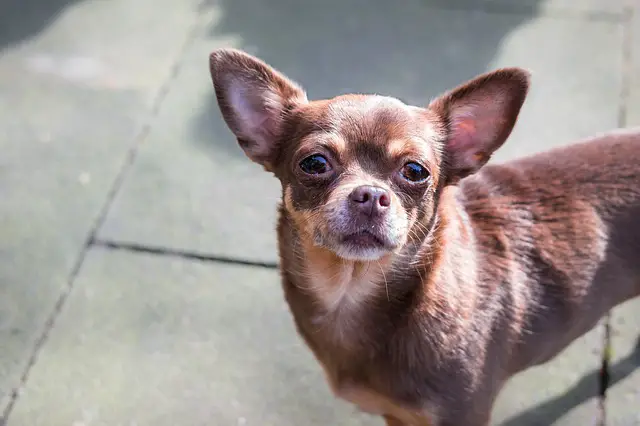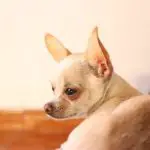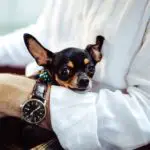What is reverse sneezing in Chihuahuas?
Acchoo! Gesundheit!
The first time my Chihuahua Bella reverse sneezed, I panicked and rushed her to the vet. It felt as if she was choking or suffocating. However, the vet assured me that it wasn’t anything to be concerned about and taught me how to manage these episodes.
Indeed: reverse sneezing in Chihuahuas is fairly common and also usually painless and harmless – typically it is a result of allergies or inflammation in the nasal passage.
Of course, there are times when reverse sneezing in Chihuahuas can take a dangerous turn and should be treated as an emergency.
And that is exactly why it is so important for every Chihuahua owner to know what reverse sneezing is all about and when to see a vet. After all, this is a common health issue in Chihuahuas and awareness and knowledge about it can make a great deal of difference.
Find out everything you must know about reverse sneezing in Chihuahuas!
What is Reverse Sneezing in Chihuahuas?
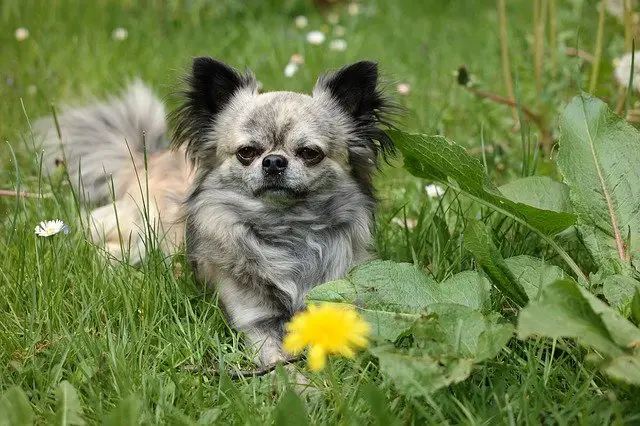
Reverse sneezing is also called mechanosensitive aspiration reflex, backward sneezing, or inspiratory paroxysmal respiration. It is a normal protective reflex that serves to remove irritants from your pet’s nasal passage.
Irritants and allergens cause spasms of its pharyngeal muscles which result in sudden noisy inspiratory effort.
The result is that your Chi might pull back its head and try to ‘sneeze inwards’ with its mouth closed and lips sucked in. This, in turn, could result in a pig-like snorting noise. Each cycle of reverse sneezing can last anywhere between few seconds and several minutes.
Naturally, as a dog owner experiencing reverse sneezing for the first time, it can be very alarming. However, in most cases, your small dog should be fine.
I will also tell you in the subsequent sections when you should see a veterinarian right away and when reverse sneeze in Chihuahua is to be treated as an emergency.
What Are the Causes of Reverse Sneezing in Chihuahuas?
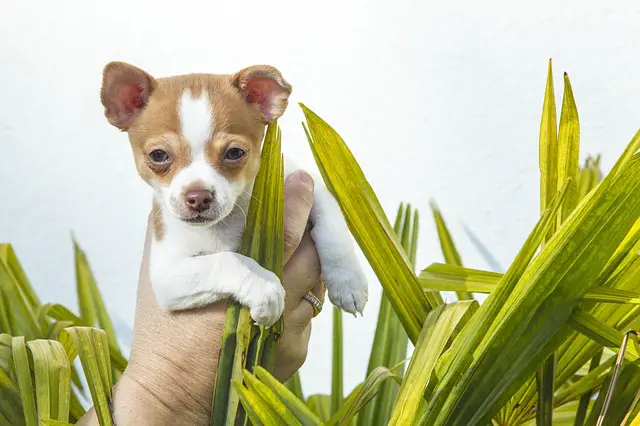
The most common causes of reverse sneezing in dogs are:
1. Allergens/rhinitis
Foreign particles like grass, mold, dust, and allergens are most commonly responsible for reverse sneezing episode. Chronic rhinitis or sinusitis can also result in reverse or backward sneezing.
2. Excess nasal secretions
If your Chihuahua has food or seasonal allergies, then it might have excess nasal discharge and secretions. These too can result in backward sneezing.
3. Nasal growths/neoplasia
Nasal polyps or neoplasia (abnormal growths of tissues) in the nasal passage are another common cause of these episodes. A nasal tumor can also cause this issue.
4. Inflammation of mucosal lining
Any irritation or inflammation of the mucosal lining can also result in reverse sneezes. The ‘reflex’ action helps your Chihuahua localize the inflammation and prevent the irritants from going in deeper into the passage.
5. Parasites and mites
Nasal mites are another common cause of this condition. Nasal mite infections are more common in Northern America and in Europe in Norway, Sweden, and Finland.
6. Tracheal collapse
When a Chihuahua suffers from tracheal collapse, the rings of the trachea ‘collapse’ inwards restricting the movement of normal airflow. This can result in backward sneezing too.
7. Certain diseases
Some diseases such as pneumonia, esophageal strictures, elongated soft palate, kennel cough, tooth root abscess, dental disease, etc. can also result in these episodes. Cysts, abscesses, and infections may also be responsible.
8. Spontaneous causes
Sometimes these episodes can be idiopathic or spontaneous without any known cause. In general, reverse sneezing is seen commonly in small dog breeds or brachycephalic breeds like pugs, Chihuahuas, terriers, as well as in miniature dogs like teacup Chihuahuas, etc.
Can Reverse Sneezing in Chihuahuas Be Fatal?
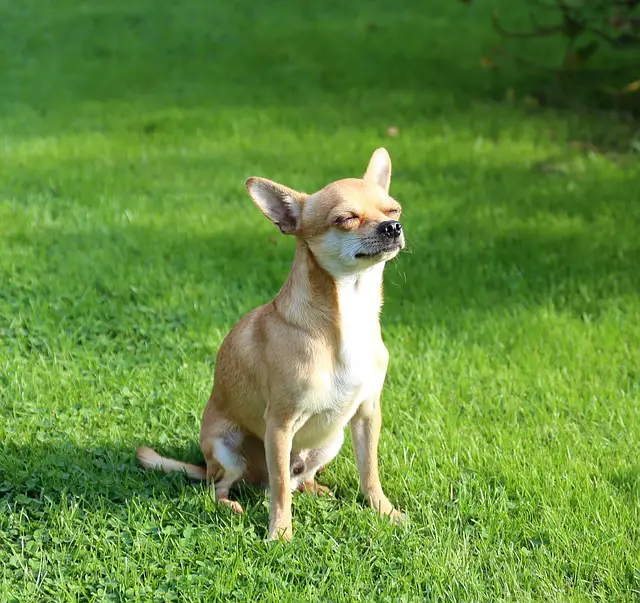
Reverse sneezing is very rarely fatal.
Yes, it can be extremely distressing to see your Chihuahua gasping and choking for air. However, in majority of the cases, your pet should be fine.
Reverse sneezing is more or less like normal sneezing – it is a reflex action and the body’s natural defense against inflammation or irritation. The action prevents harmful allergens or irritants from going deeper your dog’s throat and protects your Chihuahua from further harm.
Reverse sneezing also localizes the irritants to one area in the nasal passage.
While rarely fatal, reverse sneezing episodes can be alarming to you and your pet, especially when it occurs for the first time. Often, a Chihuahua that has had one episode will likely have other reverse sneezing episodes again in its lifetime. Between episodes, your Chihuahua should be normal.
Is Reverse Sneezing Painful for Your Chihuahua?
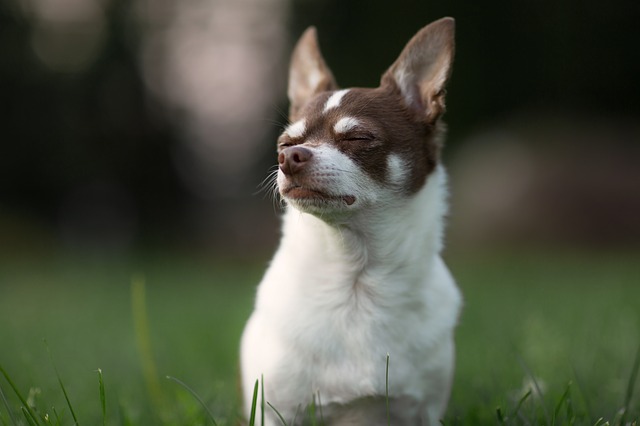
Incidental episodes of backward sneezing are usually painless.
Each episode might last anywhere between a few seconds to one minute. As stated earlier, your Chi will be completely normal between episodes. At least, most dogs are.
Don’t worry: backward or reverse sneezing rarely causes pain to your Chi.
Having said that, you must not ignore frequent episodes of reverse sneezing. These could be an indication of nasal growths, mites, tumors, or other serious conditions mentioned above.
When Should You See a Vet for Reverse Sneezing in Chihuahuas?
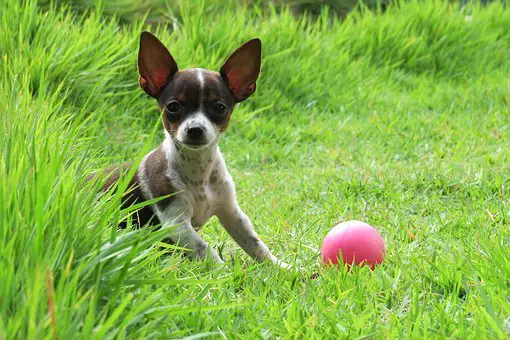
If your Chihuahua’s reverse sneezing episodes are frequent and your pet shows other signs of distress or abnormalities in between the episodes, then it is best to see a vet for them.
Here are some other signs that could warrant a trip to the vet:
1. Bloody discharge
Never ignore this. If the backward sneezing is characterized by serious bloody discharge then overtime, your pet could develop anemia. Do not ignore heavy and/or repeat bloody discharge episodes.
2. Facial deformities
A facial deformity could indicate a growth in the nasal passage, including tumors. It can occasionally indicate hard palate deformities.
3. Decreased appetite
If your otherwise healthy eater suddenly stops eating and if its lack of appetite is also accompanied by reverse sneezing episodes, then you may want to see your vet right away.
4. Pain
Your Chi will indicate pain by constantly pawing its face. It might also be lethargic, and might hide or walk with its tail between its legs. These signs surely indicate a trip to the vet.
5. Difficulty breathing
Incidental episodes usually last for a few seconds to a few minutes. If your pet continues choking, gasping for breath, or faints, then please take it to the vet right away.
How to Stop Reverse Sneezing in Chihuahuas?
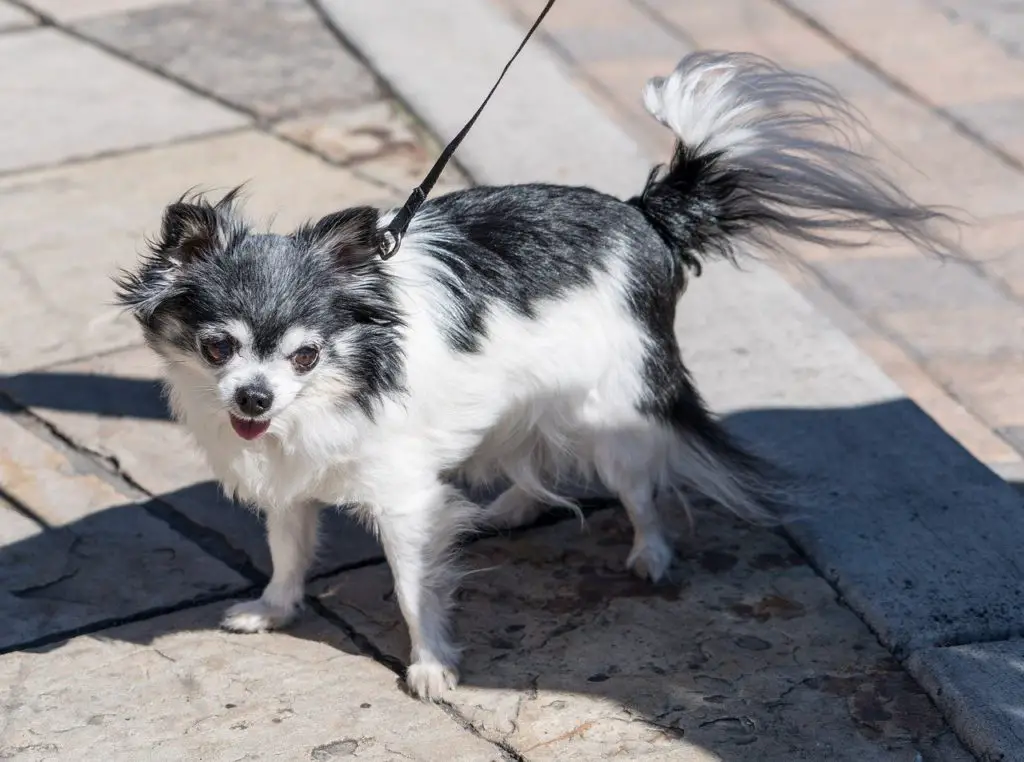
You can use several techniques during your Chihuahua’s reverse sneezing episode to calm your pet down:
1. Do not panic
The number one thing to do is stay calm. If your Chi senses your panic and anxiety, chances are that it might panic too and that can worsen the situation. So stay calm.
2. Speak to it in a soothing voice
Speak to your Chi in a soft and soothing tone. This will help reassure your buddy and help the episode pass sooner.
3. Blow gently on your dog’s nose
Blow on your Chihuahua’s face and nose gently – just like you’d blow on birthday candles. This will help your pet swallow instead of retaining the saliva. The blowing action on your dog’s nostrils can help prevent choking too.
4. Press its tongue down
If your Chihuahua allows it, press down its tongue on the floor of the mouth to further force it to swallow.
5. Use a vaporizer
If your Chi develops reverse sneezing during the allergy season or when the surrounding air is very dry, then use a humidifier or a vaporizer near it bed. This can prevent soft palate collapsing, clear your pet’s airways, ease its breathing, and reduce nasal congestion.
6. Know when to see the vet
As stated earlier, most episodes of reverse sneezing in Chihuahuas pass off fairly quickly and resolve on their own. However, you must not ignore recurrent episodes, especially ones that occur too frequently.
Also, you must see your vet if your pet appears to be suffocating, or has a bloody discharge. Do not overlook the episodes that are accompanied by loss of appetite, signs of pain, and other abnormalities in your Chihuahua.
How Many Days can Reverse Sneezing Last in Chihuahuas?
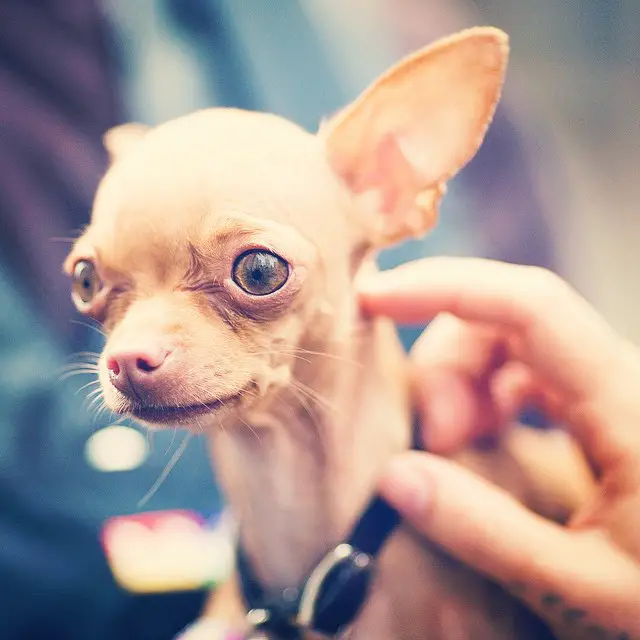
There is no fixed answer to this.
Some episodes of reverse sneezing in Chihuahuas can last for a few seconds and never occur again.
In other cases, the episodes might last for a few minutes and then recur within the next few hours several times. They might stop and then recur after a few days.
In other cases, the episodes might last for several hours – these are the ones you should not overlook.
In case of seasonal allergies, your Chi might show these symptoms only during allergy season when there is pollen/allergen in the air.
Does Benadryl Help Reverse Sneezing in Chihuahuas?
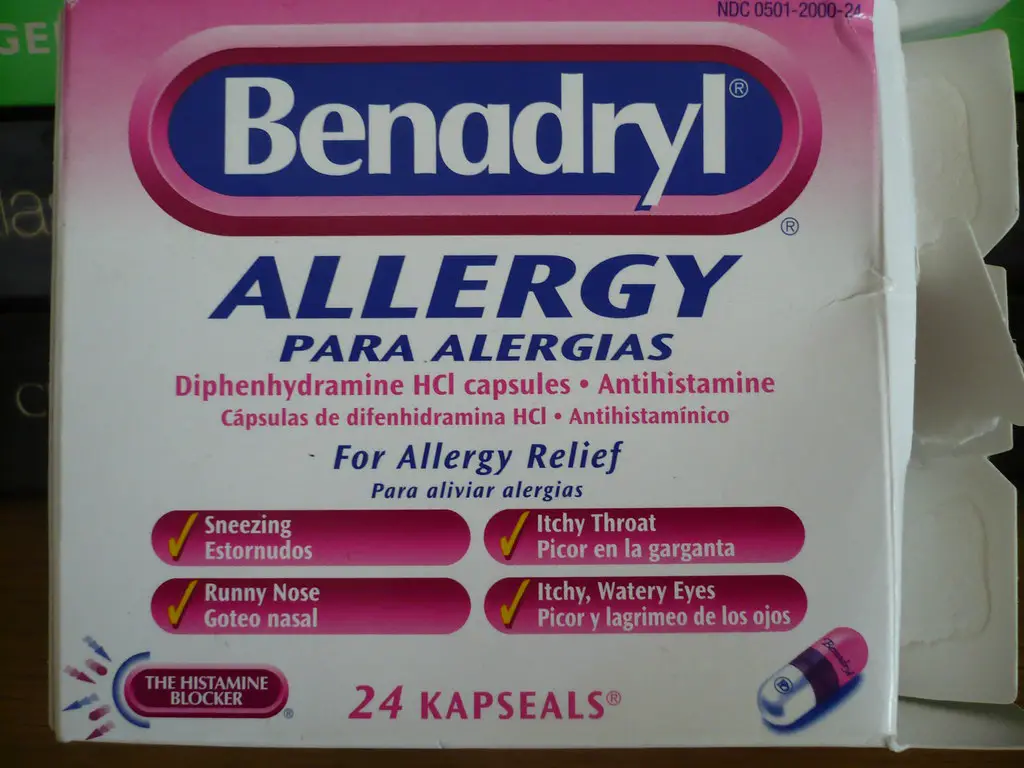
Yes, some vets do prescribe the use of Benadryl (Diphenhydramine) for reverse sneezing in dogs but you must make sure to use the plain variety only. Avoid Benadryl that has added flavors or other ingredients.
As always, please speak to your vet before you administer any medicine to your pet.
Note that medicines like Benadryl could make your Chi very sleepy. My Chihuahua Bella gets very irritable and cranky when she is administered anti-allergy medications like Benadryl. She won’t hesitate to snap and growl when this happens.
So, please be cautious with the use of such drowsiness inducing medicines. When in doubt, please check with your vet.
Does Apoquel Prevent Reverse sneezing in Chihuahuas?
Yes, some vets recommend the use of Apoquel for reverse sneezing in dogs, especially when the pollen count is high.
Apoquel is not an anti-allergy medication, steroid, or cyclosporine. It is simply a commonly prescribed drug for dogs with pruritis, itching, hives, and dermatitis.
If your vet has recommended Apoquel for dog sneezing, then chances are that s/he suspects your pet’s episodes are due to pollen/allergic rhinitis/seasonal allergies, etc.
In such a case, definitely Apoquel could help. This medicine works at a cellular level and blocks inflammation. Over the period of next few days, you will want to monitor your pet and report its symptoms and frequency of episodes to your vet.
If the reverse sneezing episodes have tapered off, then your vet might recommend the use of Benadryl for regular use instead of Apoquel.
How to know if My Chi is Choking or Reverse Sneezing?
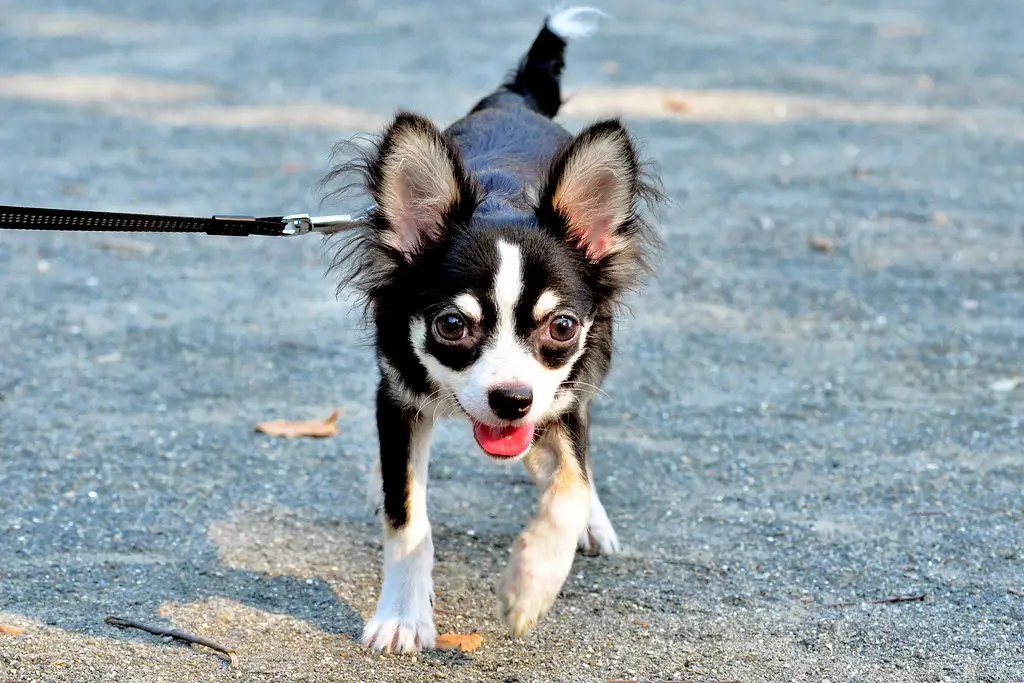
If your Chihuahua is choking, it might indicate so with the following signs:
- Distress
- Pawing at the mouth
- Gagging
- Rubbing their faces against the ground
- Salivating
- Coughing
If your Chihuahua is reverse sneezing, it will have the following signs:
- Choking
- Lips pulled back
- Snorting sound
- Difficulty breathing
- Coughing
As can be seen, the symptoms of both choking and reverse sneezing are very similar. Choking is very serious and could be fatal. Reverse sneezing usually stops after a few seconds and most episodes do not need a trip to the vet.
Is Reverse Sneezing a Sign of Kennel Cough?
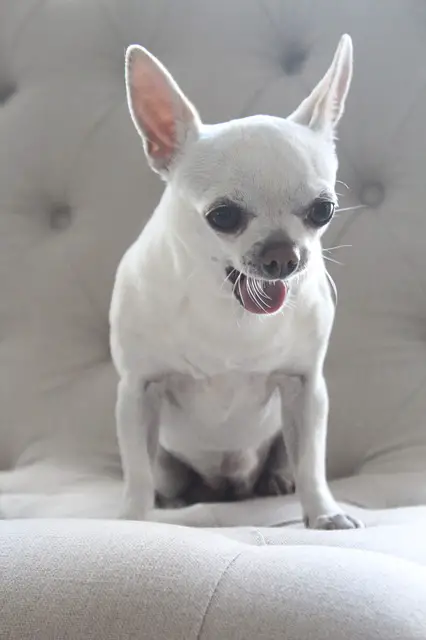
Kennel cough is a serious health issue in dogs and you must not overlook it. It occurs when your Chi develops a bacterial or viral infection usually from an infected dog. Kennel cough is highly contagious.
It can cause reverse sneezing and a dry sniffling cough, among other symptoms. Kennel cough can also make a dog very sick resulting in loss of appetite, signs of lethargy, and very low energy.
Thankfully, there is a vaccine available for this disease although no vaccine can guarantee 100% protection. This is because there are many different pathogens that could cause kennel cough in dogs. However, vaccinating can greatly reduce the severity of symptoms in afflicted dogs.
Conclusion – Reverse Sneezing in Chihuahuas
Reverse sneezing in Chihuahuas occurs due to allergens, inflammation or irritation of the nasal passage. In rare cases, it could have serious underlying causes like kennel cough, tumors, polyps, or collapsed trachea.
Most cases of reverse sneezing in Chihuahuas resolve on their own. Rarely, you might have to see a vet for it. You could administer some Benadryl or ask your vet for some Apoquel/other medicines to manage inflammation.
Do not ignore reverse sneezing if it is accompanied by signs like bloody discharge, loss of appetite, facial deformities, and/or pain/pawing of the face.
